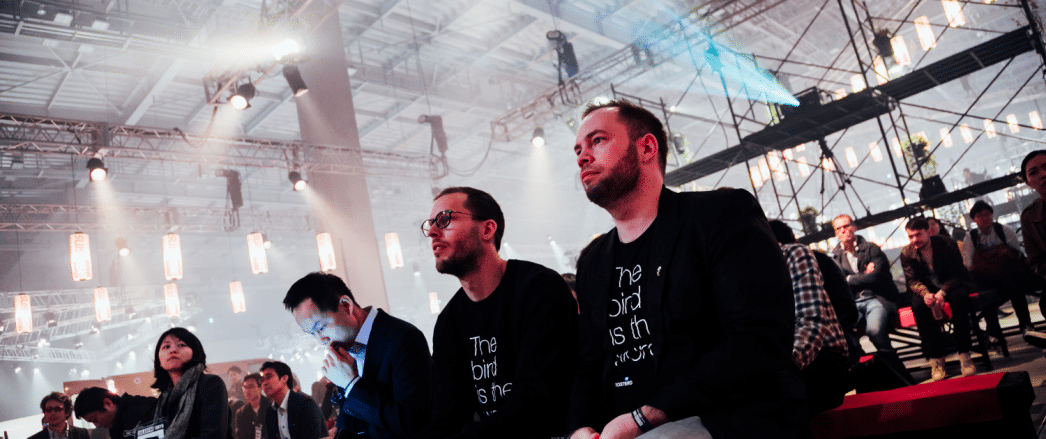Ticketbird flew out to Tokyo to check out the startup scene! This is what we learned about Japan’s culture.
Tokyo’s startup scene
My personal experience and opinion is that the startup scene is changing. Earlier it was very difficult for young entrepreneurs to start a business and gain confidence and trust from outsiders. But now it seems that good things are happening. My experience from SLUSH shows that many good ideas come from both younger and older generations.
One of the local SLUSH volunteers told us, while dreaminlyg looking up in the sky, that startups are like super heroes: a small, strong team can change the world. In 10 years, I think we will see completely different and more developed systems for innovation and development. A lot of entrepreneurs are amazingly dedicated and hardworking, and focused on making their ideas successful. And Japan/Asia are huge market the possibilities are endless.
The day before SLUSH
SLUSH is so much more than just the show itself. It started the day before, with a welcome briefing from the Market Entry Session by Hakuhodo and Reaktor. A handful of speakers were talking about the Japanese market and then we, the startups, also got the opportunity to pitch on stage for 3 minutes. This was a perfect practice for the SLUSH pitching contest. In the afternoon we had a briefing from the Swedish Embassy where we received some info about SLUSH and what will happen during the week.
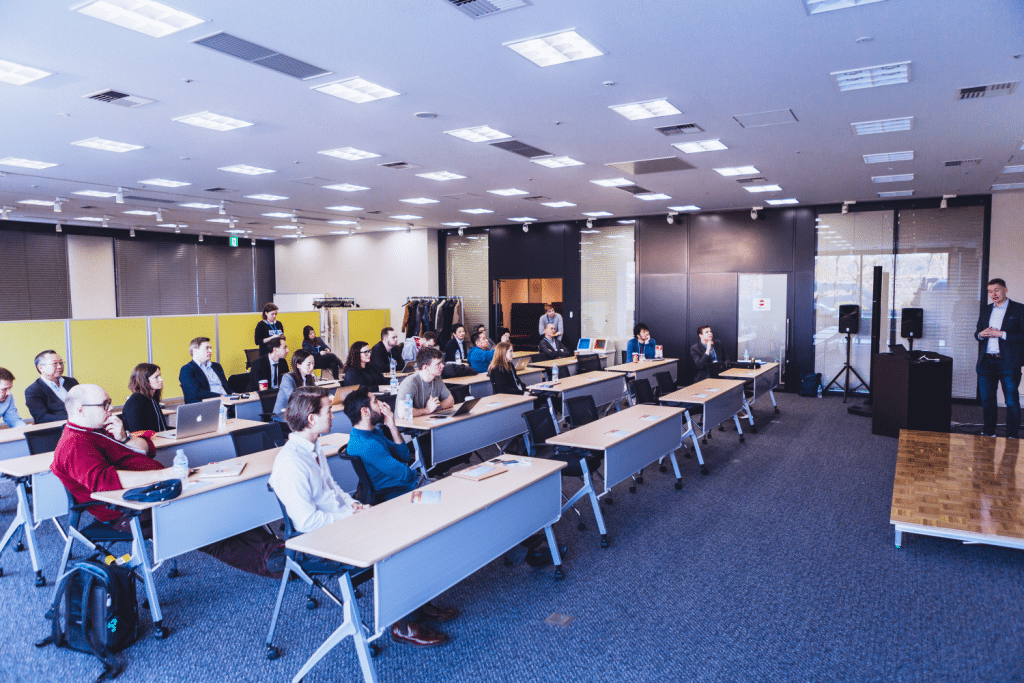 Hakuhodo and React on stage
Hakuhodo and React on stage
Pitching contest
It was absolutely amazing to pitch in front of the judges panel and investors at SLUSH. Nervous, of course, being the first time I was on stage for a pitching context, but great fun. The morning before the contest, we had a guided tour, learning how everything was going to work, where and when and how. Felt like going back to school again. But great support and information from the volunteers at SLUSH.
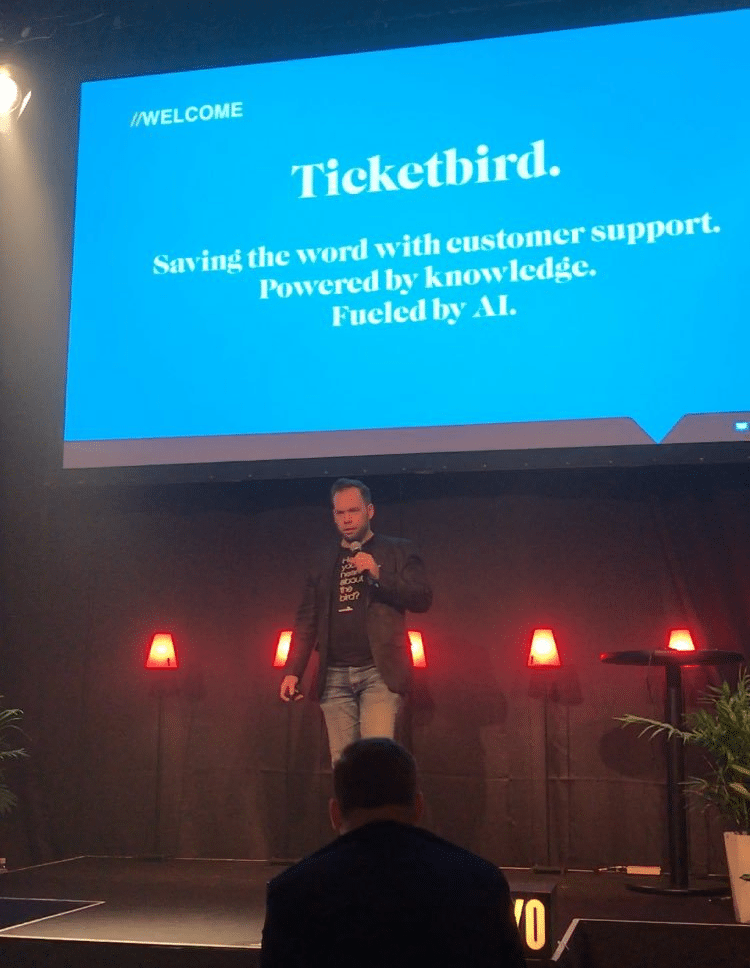
Pitching on stage. Of course, my attitude was to win the whole contest!
We were the only company from Sweden to reach the semifinal, and one out of two from Scandinavia. So it was very good, given that there were 500 startups trying to qualify to the pitching contest, of which 80 were included. 20 compenies made it to the semifinals and only five to final. Twenty minutes before the semifinal, we changed the presentation, since it would be in 5 min (3 min the quarterfinals). Maybe not the best tactics, but it went well anyway. I am a little self-critical: I did not focus enough on questions and answers afterwards so I was a little bit lost. But the quarterfinals went brilliant with great questions and answers afterwards, so I’m very pleased.
I’m especially pleased with the response from companies, investors and partners after my pitch, who came to the embassy’s booth afterwards. Already waiting for the next pitching opportunity! What a rush! And the contact with the audience! Great fun.
We got many leads, partners and contacts at SLUSH. We have already started discussions with partners, angel investors and customers, who we hope will take part in our proof-of-concept program that we launched in May. We have seven spots left as I’m writing this. We also met people from IBM Watson, IBM’s AI. It turns out Watson is much more famous and well-featured in Japan than in Europe. We have started partnership discussions aimed at preparing for the Japanese market and their character set.
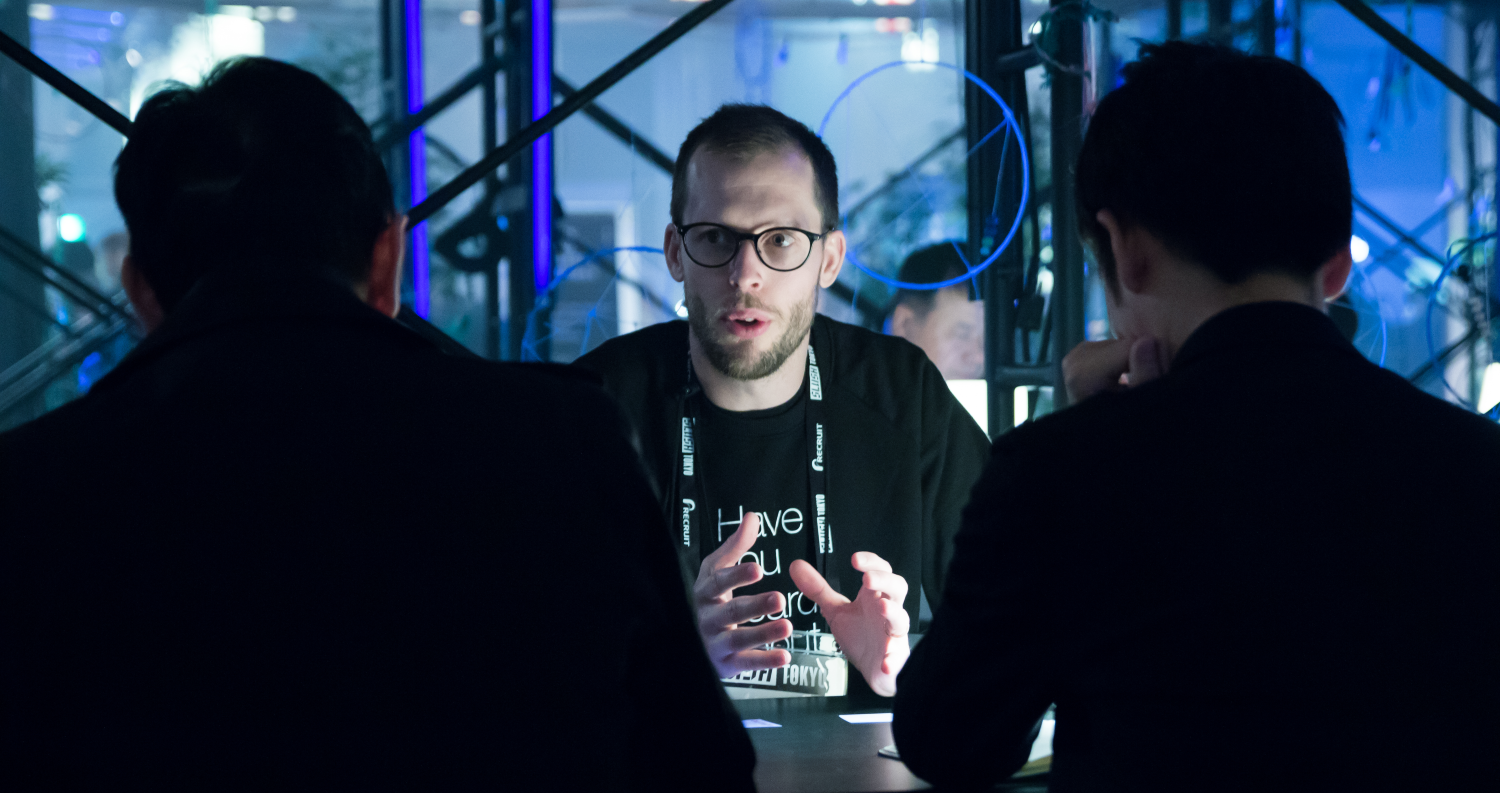
Of course I am very proud of my performance in the pitching competition. Not only for the actual outcome, but how the pitching competition is helping us as a company. It started with pitching for Create Incubators and their business coaches and got amazing feedback. After that we started to refine the pitch and our journey to where we are today. Our concept and message became much clearer and we managed to do it in a short period of time. We then went to Sundsvall where Magnus pitched on stage live on Nordic Future Days (Nordic Future by Nordic Impact Week)

If you want to see the pitch from Grönborg on Nordic Future Days, it’s forwarded to 11:45, when Ticketbird goes on stage.
After the amazing warm-up in Sundsvall, I pitched at SLUSH Tokyo and we managed to end up in sixth place, out of 80 contestants. So I’m so proud of all the work we did before and during SLUSH.
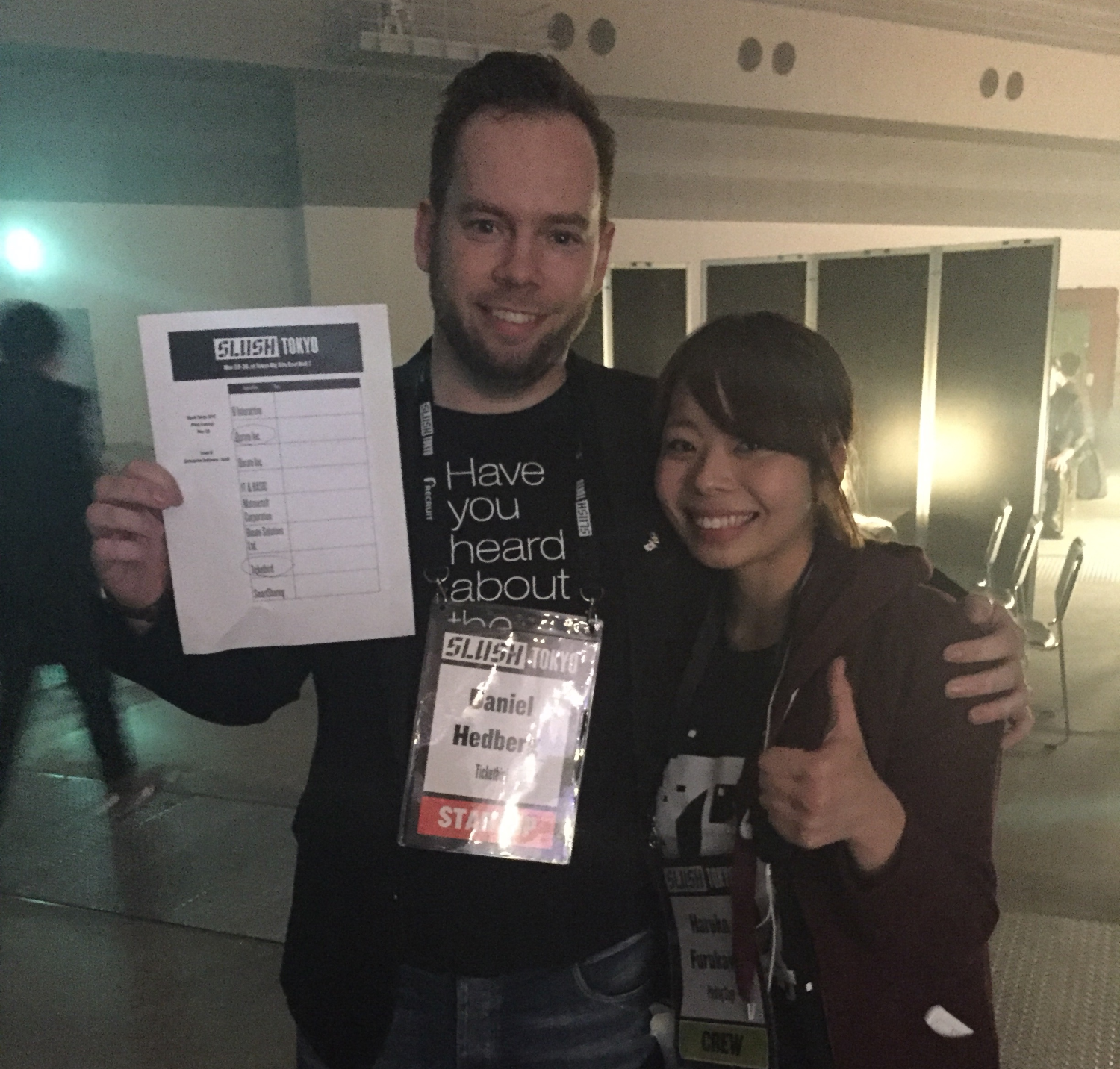
I can also guarantee that no Nordic company at SLUSH Tokyos didn’t hear about the bird!
“Have you heard about the bird?”
“The bird is the word!”
“We save the word!”.
Our slogans were repeated time after time. Several at the fair also stopped and made the bird dance to Surfin Bird when they saw our beautiful T-shirts!
Important things we learned about doing business in Japan:
- Japanese people work hard, very hard. They start early in the morning and return home late in the evening. Which means they do not watch movies or TV shows because they are too long. Everything is customized and optimized for fun short films in 30 sec-2 min, which they can check on the subway to and from work.
- There is not much free time, so products that have multiple functions, 2-in-1, are popular. For example, a deodorant who also cleans the clothes while using it.
- Japanese do not use LinkedIn for business contacts, they use Facebook – so they recommended that we get separate Facebook accounts for private and work.
- Cold calls are not working as good as building relationships.
- Not all Japanese are comfortable speaking English, and if we are going to do business in Japan, it is recommended that we have a local partner that we trust that speaks Japanese. Even though there is someone at the company who speaks English, they may not be decision makers, or will be able to convey it to all persons entitled to decide.
- A large part of the culture is that no one should feel uncomfortable. It is also the team before the self. This means that everyone in the meeting room have to be on the same page. Otherwise, you have failed if someone does not feel comfortable with the decision.
- A meeting in Japan is not about discussing a solution like we are used to at home. Everything is actually decided before the meeting and will be approved during the meeting.
- And for that matter, even though we have contact with the CEO of the company, the decision-making process is completely different to what we are used to. A decision requires in some cases approval of 4-5 different persons. The CEO can not decide for him- or herself.
- The long decision cycles are good if you think long-term, which we have to do because the Japanese themselves do not take any short-term initiatives. Paying monthly is not long-term. They want to go for 3-5 year contracts.
- The local partner should have the same vision and mission as we. Everything must also be localized, translated and adapted. Because everything is different from Sweden.
- One tip we received was to read about Japanese business history. Two things: “Zaibatsu” and “Keiretsu” that deal with major Japanese conglomerates who own large parts of the Japanese industry.


